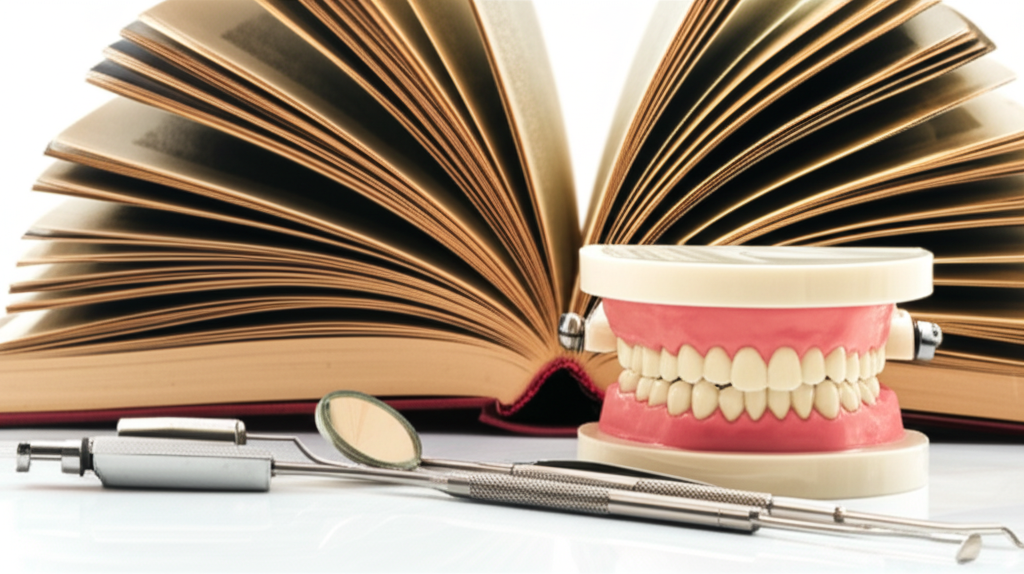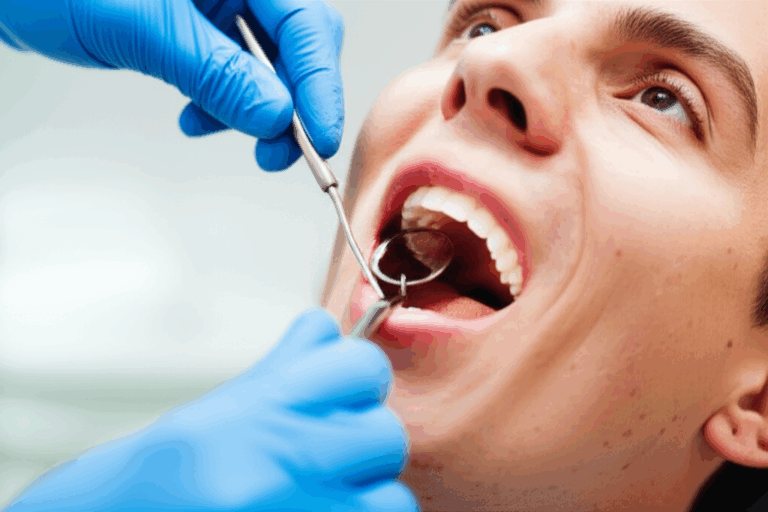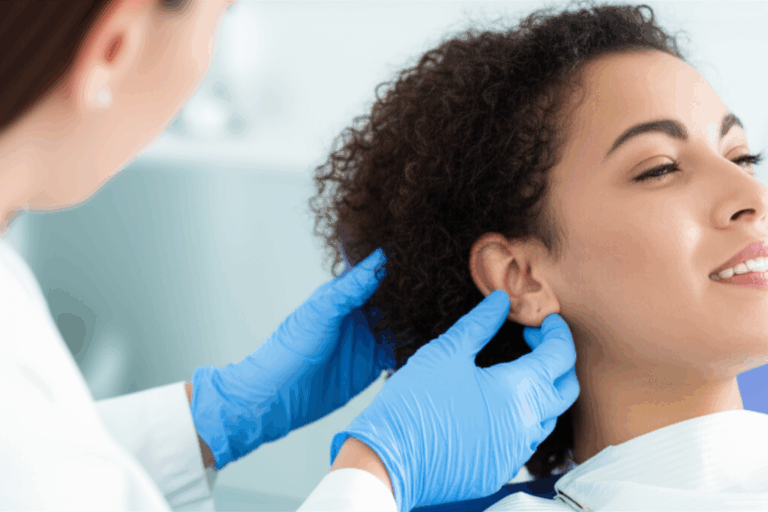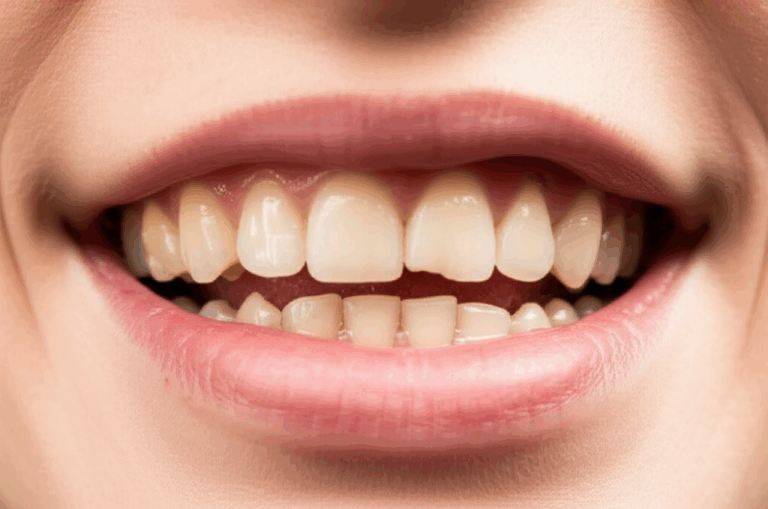
What Education is Needed to Be a Dentist? Your Step-by-Step Guide to a Fulfilling Dental Career
That question—“What education is needed to be a dentist?”—comes up everywhere, from high school talks to late-night Google searches. And it makes sense to ask. Dentistry isn’t just about steady hands and a good smile. It’s a hard job that needs lots of knowledge, skill, and kindness.
If you’re thinking about becoming a dentist, you probably want the real scoop—not just a simple answer, but a guide you can use. You’re in the right place.
In This Article
- The Path to Becoming a Dentist: Why It All Starts Before College
- Phase 1: Pre-Dental Education—What’s Needed Before Dental School?
- Phase 2: The Dental Admissions Test (DAT)—How to Do Well on the Entrance Test
- Phase 3: Applying to Dental School—How to Stand Out
- Phase 4: Dental School (DDS/DMD)—What You’ll Learn and Do
- Phase 5: Licensure and Beyond—Getting Your License and Thinking About Specialties
- Career Outlook & Money Stuff—Jobs, Pay, and Student Loans
- Is Dentistry Right For You?—Recap and Action Steps
The Path to Becoming a Dentist: Why It All Starts Before College
So, you want to fix smiles for a living? Dentistry is more than drills and dental chairs. It’s science, art, and a lot of people skills. It takes years of school, hands-on training, and a strong promise to help people live better lives. The good news? There’s a clear path, and if you follow each step, you’ll be wearing a white coat before you know it.
In short:
- Finish a college degree with a lot of science classes
- Pass the Dental Admissions Test (DAT)
- Go through dental school (DDS or DMD, usually 4 years)
- Get a state license
- (Optional) Go further with a dental specialty
Let’s look at each step.
Phase 1: Pre-Dental Education—What’s Needed Before Dental School?
Before you start dental school, you need a strong schooling base. But what does that really mean?
A. Getting Started: High School Prep
It’s never too early to start.
- Science and Math Classes: Take biology, chemistry, physics, and math. This will help you in college later.
- Advanced Placement (AP) Courses: If your school has AP Bio or AP Chemistry, try them! High scores might give you college credit.
- Early Exposure: Shadow a dentist, volunteer at a health clinic, or join a health club. Real-world experience is super helpful.
B. The College Degree (Usually 4 Years)
Many people ask: “Do I have to be a biology major to become a dentist?”
Nope. Dental schools want students with different backgrounds, but you do need to finish certain required classes.
Key points:
- Grades matter. Most who get accepted have a GPA around 3.5 or higher, especially in science classes.
- No single ‘right’ major. If you like math, you can major in math—as long as you do the right science courses too.
C. Needed Classes: The Basics
Some dental schools have their own requirements, but you almost always need these:
- Biology: General biology, and maybe anatomy, physiology, microbiology
- Chemistry: Both general and organic chemistry
- Physics: One or two semesters
- Biochemistry: Often needed now
- Math: At least stats or calculus
- English/Communication: So you can write and talk clearly
- Labs: Most science classes should have a lab part
Some schools take AP credit, but not all—so always check.
D. Other Experiences That Matter
Dental schools want more than just good grades. They want to see that you know what the job is really like.
1. Shadowing
- Spend time watching dentists and maybe specialists (like orthodontists).
- Try for at least 100-200 hours; serious students do even more.
2. Volunteering
- Help out at healthcare or community projects.
- Anything that builds your caring or leadership skills is good.
3. Research Work
- Not required, but working in a lab or on a science project shows you’re curious and hardworking.
4. Leadership & Communication
- Dentists lead teams and talk to people all day. Join student groups, run a project, or help teach if you can.
Bottom line: Your college years are practice time. Work hard in class, find hands-on experiences, and try to really learn what being a dentist is all about.
Phase 2: The Dental Admissions Test (DAT)—How to Do Well on the Entrance Test
Everyone who wants to be a dentist has to take the DAT.
It’s a long, computer test that checks if you know your science stuff and can handle a tough exam.
A. What Is the DAT?
It’s a test with four big parts:
- Natural Sciences: Biology and chemistry
- Perceptual Ability: Can you “see” how teeth go together? This checks your 3D thinking.
- Reading: Can you read and understand info?
- Math: Some math and problem-solving
Scores go from 1-30, and people who get into school usually score 19–21 (or more).
B. How to Get Ready
- Spend 3–6 months preparing—don’t try to cram!
- Use practice tests, review books, online prep, and study groups.
- Try to take the DAT after finishing key science classes, usually in your second or third year of college.
C. Why the DAT Is Important
Admission teams use DAT scores to see if you know your science and can handle tough tests.
- A good DAT can help if your grades are a bit lower—and the other way around.
Main idea: Take this test seriously!
Phase 3: Applying to Dental School—How to Stand Out
You’ve finished the classes, done the DAT, and put in the hours. Ready to apply? Let’s see how it works.
A. The Main Application (AADSAS)
Most dental schools in the US use the AADSAS. This collects your:
- Transcripts (school records)
- DAT scores
- Personal statement (why do you want to be a dentist?)
- Letters of recommendation
B. Personal Statement & Letters
- Personal Statement: Share your story. Why dentistry? What keeps you going? Be honest and real.
- Recommendation Letters: Get references from science teachers, dentists you shadowed, or people who saw you volunteer.
C. The Interview
If you’re asked for an interview, nice work!
- Interviews can be one-on-one, with a panel, or short “mini” interviews with different people.
- Practice—but don’t memorize—schools want to see the real you.
D. Acceptance Rate
About half of dental school applicants are accepted somewhere, but the top schools are harder to get into. If at first you don’t get in, don’t give up—many great dentists applied more than once!
Phase 4: Dental School (DDS/DMD)—What You’ll Learn and Do
Congrats! You’re in dental school, one of the toughest grad schools around. Here’s what you’ll go through.
A. DDS vs. DMD: What’s the Difference?
You’ll see two degrees:
- Doctor of Dental Surgery (DDS)
- Doctor of Dental Medicine (DMD)
They’re the same. Schools just like different titles.
B. Dental School Classes: Four Years
Years 1 & 2: Science and Pre-Clinical
- Anatomy, physiology, microbiology, and medicine
- Dental anatomy, tooth shapes, dental materials
- Practice working on fake teeth in a lab
Years 3 & 4: Clinic Time
- Treat real people in school clinics
- Learn about fixing teeth, root canals, caring for kids, and more
- Try out different dental specialties
You go from “flight simulator” to actually working on real people!
C. Getting Hands-On Experience
Dental school isn’t just books and labs.
- You’ll do fillings, crowns, cleanings, and maybe small surgeries.
- Count on lots of hours in the clinic. When you finish, you’ll be confident to start your dental job.
Phase 5: Licensure and Beyond—Getting Your License and Thinking About Specialties
A dental degree only means you’ve graduated. To practice, you need your license.
A. Dental Board Exams
You must pass the National Board Dental Exam (NBDE or INBDE)—a tough test on everything from science to ethics. Some states use the ADEX or their own test. Check the rules where you want to live.
B. State License Rules
After you pass the board test, each state may ask for:
- A rules or law test
- Good character proof
- A background check
When you do all this, you get your license—a key that lets you work in that state.
C. Optional: Special Training and Specialties
Want to learn more?
- Residency: Jobs like orthodontics or oral surgery need 2–6 more years of training.
- General Dentistry: You can work right away, but some do a General Practice Residency (GPR) or Advanced Education in General Dentistry (AEGD)—one extra year to get more practice (and sometimes get paid).
- Continuing Education: All dentists must keep learning to keep their license up to date.
Special Pathways: If you want to straighten teeth, do hard surgeries, or only help kids, there are paths for:
- Orthodontics
- Pediatric Dentistry
- Oral and Maxillofacial Surgery
- Periodontics
- Prosthodontics
Want to know about new tech in the lab? Read up on digital dental labs and the cool world of dental ceramics labs. These help dentists care for patients better than ever.
Career Outlook & Money Stuff—Jobs, Pay, and Student Loans
Becoming a dentist takes a lot of time and money, so let’s look at the numbers.
A. Cost of Dental School
- Public, in-state tuition: $35,000–$65,000 a year is usual. Private or out-of-state can be more than $90,000 per year.
- Average dental school debt: About $300,000–$350,000 (sometimes even more).
- Scholarships and help paying loans are out there, but it can be tough to get them.
It’s a big cost, but most dentists pay off loans in a good amount of time. Learn about student loans and talk to a money advisor during school.
B. Pay and Job Chances
- General dentists earn about $163,900 a year (according to the U.S. Bureau of Labor Statistics, 2022).
- Specialists (like orthodontists) can make much more.
- Job growth: 6% from 2022 to 2032, with about 5,000 new dental jobs a year.
C. The Upsides and Downsides
Dentistry offers high pay, job safety, a chance to help people, and the option to run your own business.
Trade-offs? Lots of debt, hard classes, and sometimes long first years at work.
Curious about labs that help you once you’re a dentist? Check out things like modern crown and bridge lab tools or new materials from a top china dental lab. Working with good labs shapes the future of dental care.
Key Educational & Career Statistics for Dentists (US)
| Metric/Category | Average/Typical Data Point | Notes/Context |
|---|---|---|
| Total Education Length | 8-10+ years (Post-High School) | Includes residency for specialists. |
| Undergraduate Degree | 4 years | Bachelor’s usually needed. |
| Dental School (DDS/DMD) | 4 years | Full-time, accredited program. |
| Post-Doctoral Residency | 2-6+ years (optional) | Needed for dental specialties. |
| Avg. Undergraduate GPA | 3.5–3.7+ (Overall); 3.4–3.6+ (Science) | For most who get in. |
| Avg. DAT Score | 19–21 (Academic Average/Perceptual Ability) | Out of 30; good scores. |
| Required Shadowing Hours | 100–200+ | Many dentists, many specialties is best. |
| Dental School Acceptance Rate | ~50–55% (across U.S.) | Varies a lot by school. |
| Annual Tuition (Public) | $35,000–$65,000+ | In-state; private and out-of-state more. |
| Student Loan Debt | $300,000–$350,000+ | Depends on the school. |
| Job Outlook (2022–2032) | 6% growth | 5,000 new positions/year. |
| Median Annual Salary (2022) | $163,900 (General Dentists) | Specialists can earn more. |
| CODA-Accredited Schools | 69 (as of 2023–2024) | U.S. only. |
| Gender Distribution | ~50% Female / 50% Male | Pretty even these days. |
Is Dentistry Right For You? (Recap and Action Steps)
Let’s zoom out.
You’re a good fit for dentistry if:
- You like science, solving problems, and working with your hands.
- You really like to help others feel good and healthy.
- You can put in the years it takes (8–10 years, plus always learning).
- You can handle a lot of school work and not get too stressed.
- You have enough kindness to give tough news—and enough joy to make people smile!
Dentistry may not be right if:
- You don’t like science or working with people.
- You’re not okay with debt and waiting to make money.
- You want a quick and simple job path.
But—if you like to see the difference you make right away and want to be your own boss someday, few careers beat dentistry.
Your Next Steps
Here’s a checklist you can keep with you:
How to Become a Dentist:
- Take good science and math classes in high school.
- Pick a college major you like, but make sure to take the right pre-dental classes.
- Volunteer or work in dental or health care—start shadowing dentists early.
- Keep your grades up, especially in science.
- Study hard for the DAT and aim for a good score (19+).
- Build good relationships with teachers or dentists for recommendations.
- Write a true, thoughtful personal statement.
- Get ready for interviews: practice talking about why you want to be a dentist.
- Finish dental school (DDS/DMD), get good at both science and caring for real people.
- Pass the NBDE/INBDE and any state license steps.
- Think about doing extra training if you want to specialize.
- Keep learning—for your patients, and for you.
Frequently Asked Questions About Dental Education
1. Can I go to dental school without a science major?
Yes, as long as you do all the science classes needed.
2. How competitive is dental school?
Around half of all applicants get in somewhere. Top schools are harder.
3. What’s the difference between a DDS and DMD?
There really isn’t one—they are just different names for the same thing.
4. Do I need a residency after dental school?
Not to be a general dentist, but yes if you want to specialize.
5. Can new dental lab technology help when I’m a dentist?
Yes. New labs, like a digital dental lab, and new materials make care better and more comfortable for patients.
Your Healthy Takeaway (The Final Word)
Becoming a dentist takes work—but every smile you help and every patient you comfort will show you why it was worth it.
To sum it up:
- Dentistry needs focus, hard work, and kindness—from college to clinic.
- The DAT and applying to school are hard, but you can do it if you prepare.
- Good dentists never stop learning—they always look for new ways to help patients.
- The payback is good—with money, job safety, and knowing you changed someone’s life.
- If you want to help people and are ready to work for it, you have what it takes.
Interested? Talk to an advisor, shadow a local dentist, or reach out to a dental school. Every big journey starts with one step—and your smile may be what changes someone’s world.
References are from the American Dental Association (ADA), American Dental Education Association (ADEA), and the U.S. Bureau of Labor Statistics (BLS), which have up-to-date info on dental school and careers.








